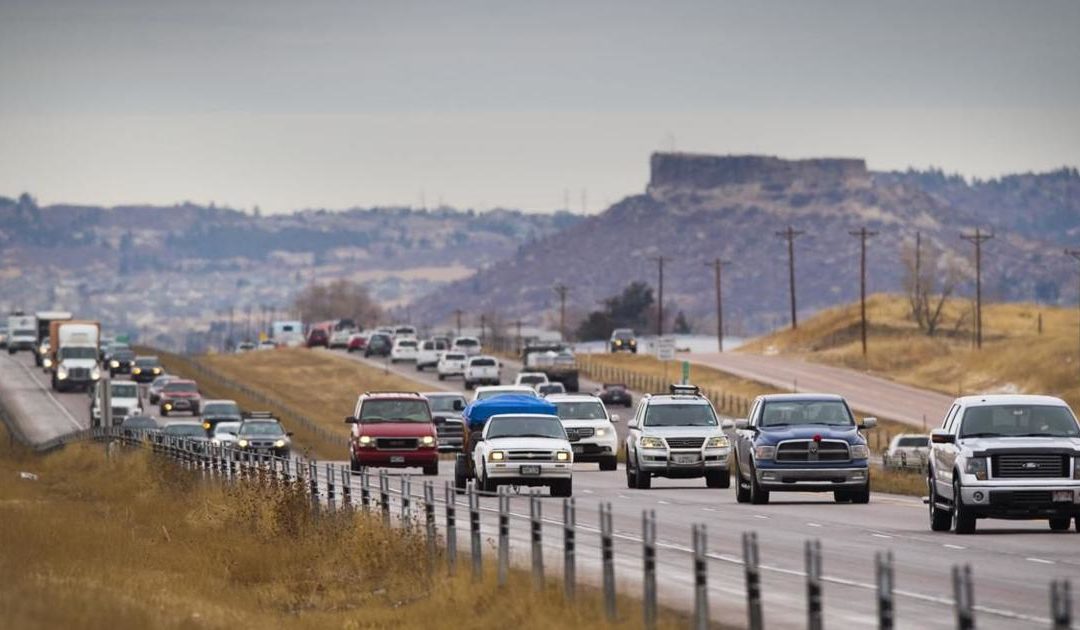Quiz time. Colorado’s Employee Trip Reduction Program is:
a) Yet another potentially costly mandate imposed by the state government on Colorado employers, ensnaring them in more red tape and undercutting their ability to create jobs.
b) A brazen intrusion into the personal preferences of Colorado commuters, limiting their choices and further complicating how they get to work.
c) A policy pipe dream that, for all the required effort, will have little appreciable impact on the quest to curb greenhouse gases or climate change.
d) All of the above.
Too obvious? Apparently not to the bureaucrats who are preparing to force this new edict on the state’s largest job creators and their workers.
As reported in Monday’s Gazette, the imminent program likely will require larger employers in the Denver metro area to “increase parking charges” for employees’ personal gas-powered vehicles. The businesses will have to appoint an “Employee Transportation Coordinator” to administer programs that reduce each company’s “single occupied vehicle” commutes. And they’ll have to provide employees fully or partially subsidized bus and light-rail passes.
The final shape and scope of the new mandate await deliberation by the state Air Quality Control Commission in August. It will pore over a report by the Colorado Department of Public Health and Environment’s Air Pollution Control Division, including an economic impact analysis and input from 25 stakeholders such as businesses.
The goal is to further reduce Colorado’s carbon emissions by taking vehicles off the road. That’s a long shot, given all the variables in play in implementing the complicated policy.
What’s a safe bet is it will raise the cost of doing business. Probably by more than lawmakers anticipated a couple of years ago when they OK’d the open-ended legislation that left it to the commission to come up with the mandate.
Some 2,764 businesses with some 900,000 employees will have to develop plans by next Jan. 1 to meet the new law’s expectations. As The Gazette also reported, that could cost anywhere from $7,200 to $811,643 annually for each of those businesses. Not surprisingly, plenty of the business community is alarmed.
“We share a common goal of achieving clean air and a healthy environment but incentives and education are far better tools than regulations and penalties,” the Colorado Business Roundtable said in a message to members. “With the commission estimating that the cost to implement the program could reach as much as $800,000 annually for larger employers, the economic impact would be devastating and would likely result in job losses and higher prices for consumers.”
To reduce “single occupied vehicle” trips during peak commuting hours, the targeted employers will have to offer employees options including shuttles; flexible schedules; perks to those who drive electric vehicles; carpooling and ride-sharing; bike parking and showers, and as noted, passes for public transit.
Options like carpooling long have been promoted by some employers, and most such measures can provide helpful alternatives for at least some employees. If kept voluntary, such efforts are even laudable — though more so as a means of alleviating rush-hour traffic congestion than for meeting nebulous and ever-changing climate-action goals.
But to impose the measures on employers is to invite havoc. It essentially would require a lot of those businesses to make substantial investments — in flexible schedules, employee shuttles, showers, etc. — that most of their employees may not even want.
Most Colorado workers can’t afford electric cars. And while many Coloradans love their bikes, they pedal them for recreation and exercise, not to get to work. Not in July; certainly not in January. Even workaday practices like carpooling, while convenient and preferable for many employees, are inconvenient for many others. Doesn’t it make more sense to let each company sort out which of its employees are open to alternatives to their own personal vehicles?
It all reflects a stubborn commitment to a loopy utopianism — atop an obliviousness to what Coloradans really want or need for their transportation. The Climate Action Plan to Reduce Pollution was signed into law by (and at the behest of) Gov. Jared Polis in May of 2019. Its over-the-top goals — cutting greenhouse gas emissions 26% over 2005 levels by 2025; 50% by 2030, and 90% by 2050 — lacked specific means to achieve those ends. That was handed off to the bureaucracy; hence, the Employee Trip Reduction Program.
A lot of commuters need their own vehicles for reasons too numerous and obvious to mention. A lot of others don’t mind sharing a ride to work whether for the sake of the environment or simply the pleasant company. The one thing they all can do without — is the governor’s back-seat driving.
This content was originally published here.

